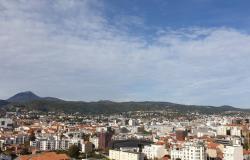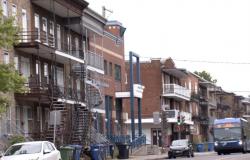Gary Kinsman has resigned as a board member of Pride Toronto. It demands explicit support from Pride Toronto for the Palestinian cause and demands that Israel’s actions be vigorously denounced.
Mr. Kinsman is part of the community LGBTQ+ in Toronto since the 1970s. This year, he will not participate in the Pride festivities.
Pride Toronto has become too corporate”,”text”:”Pride Toronto has become too corporate”}}”>Pride Toronto has become too corporate
, he said. He criticizes the rights organization LGBTQ+ to have sponsors who support what he describes as genocide in the Gaza Strip.
For us, this is not a sign of pride. It’s a sign of shame
he added.
Mr. Kinsman says he and 18 other board members requested a meeting to discuss funding sources. However, their request was rejected, he said.
Toronto Pride has become an undemocratic organization that is not at all committed to defending the rights of the communities it represents.
For his part, the general director of Pride Toronto, Kojo Modeste, says the funding received by the organization is directly reinvested in the community LGBTQ+.
So that Toronto pride grows
Open in full screen mode
Kojo Modeste, executive director of Toronto Pride, says sponsor investments are essential for the movement to flourish.
Photo: Radio-Canada / Sarah Tomlinson
Mr. Modeste affirms that, according to these sponsors, the participating artists could not be as well remunerated.
He adds that the community is increasingly targeted in certain provinces of the country and elsewhere in the world and that the expansion of Pride Toronto allows the organization to offer more safe spaces to the community.
That’s why we continue to accept outside funding so that Toronto pride grows and better represents the queer community in the city.
A community organization
But for Mr. Kinsman, the organization could look for other sources of funding to ensure that it once again becomes a movement anchored in social justice and popular solidarity.
1981, we had neither a general manager nor a board of directors. We weren’t even a corporation. We were a community organization”,”text”:”When we created the homosexual committee in 1981, we had no executive director or board of directors. We weren’t even a corporation. We were a community organization”}}”>When we created the Gay People’s Committee in 1981, we had no executive director or board of directors. We weren’t even a corporation. We were a community organization
he remembers.
Our main goal was not to attract big crowds and sponsor funds. It was really about celebrating queer identity and protesting against all forms of oppression that the community was experiencing.
Kojo Modeste admits that the movement has evolved a lot since the 1970s. However, he believes that this evolution has allowed Toronto pride to be more inclusive.
At that time, you didn’t see queer people of different ethnicities and religions reflected in organized events
remembers Kojo Modeste. I don’t think it’s the desire of anyone in the community to roll back the progress of the last few years.
A need to listen
Open in full screen mode
According to Peter Grevstad, professor of queer studies at Sheridan College, says there are often tensions within the community.
Photo: Radio-Canada / Submitted by Peter Grevstad
To fart Grevstad is a professor of English, literary studies, and queer studies at the College Sheridan.
He says he is disappointed that some members of Pride Toronto have decided to resign after so many years of commitment.
He emphasizes, however, that tensions within the community LGBTQ+ Toronto are not new.
For example, in 2016, a group of activists for the rights of the black community interrupted the Pride parade to denounce the presence of the police, even though many people in the community did not agree.
The community itself is very diverse
he said. We need to have real dialogue to bridge our differences, which often have roots in international conflicts.
Pride can be a celebration, but it can also spark political debates. Is it possible that everyone agrees all the time? No. This is why people must listen to each other with great empathy.







